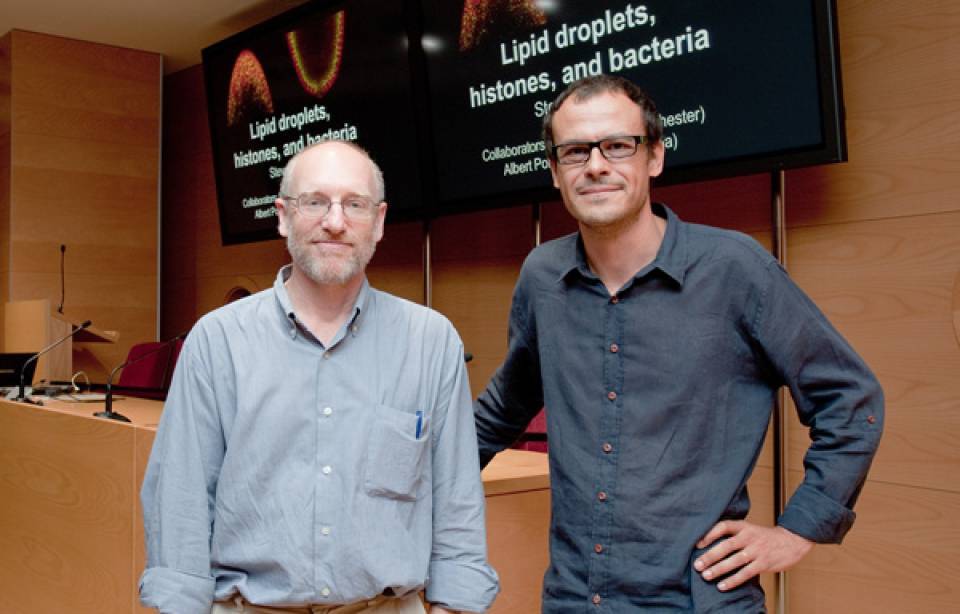Dr. Albert Pol participates in the project "Mammalian lipid droplets: a central role in the organismal antibacterial response?". Researchers propose that there are mechanisms of the innate immune system related to the accumulation of lipids in our cells that have not been discovered yet. Together with a group form the USA, one from Australia and another one from Brazil, they aim to discover and characterize these mechanisms. "We consider that our cells are capable of producing antibiotic proteins, that these compounds accumulate in organelles called lipid bodies and part of the project will involve the identification of these antibiotics" explains Dr. Pol. "The project is of great importance given the increasing resistance in bacteria that the misuse and overuse of antibiotics has caused, which is becoming a global public health problem”, he remarks.
The HSFP received this year more than 1000 initial proposals and only 82 were selected to submit a full application. Of these, 21 have received the funds for the investigation, being the collaborative project in which Dr. Pol is involved, the third in the prioritization list.
About the HSFP
The Human Frontier Science Program (HFSP) is one of the most prestigious foundations in the world. With an international program to support research, funds projects related to the complex mechanisms of living organisms. The research is funded at all levels of biological complexity: from the study of biomolecules, to the study of the interactions between organisms.
The HFSP supports international scientific collaborations. The research grants are awarded for innovative projects that involve extensive collaboration between independent teams of scientists working in different countries and in different disciplines. There are two types of grants: Young Investigator Grants, for those teams in which all members are in the first 5 years after obtaining their first independent position; and Program Grants for teams in which scientists at any stage of their career are involved.

